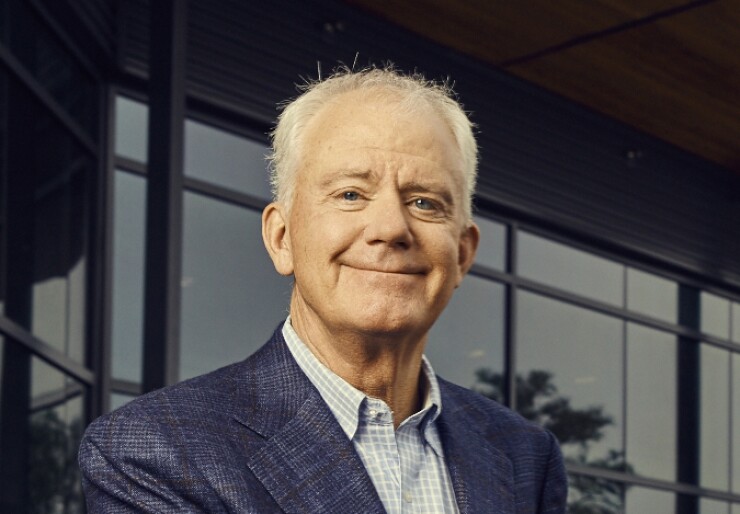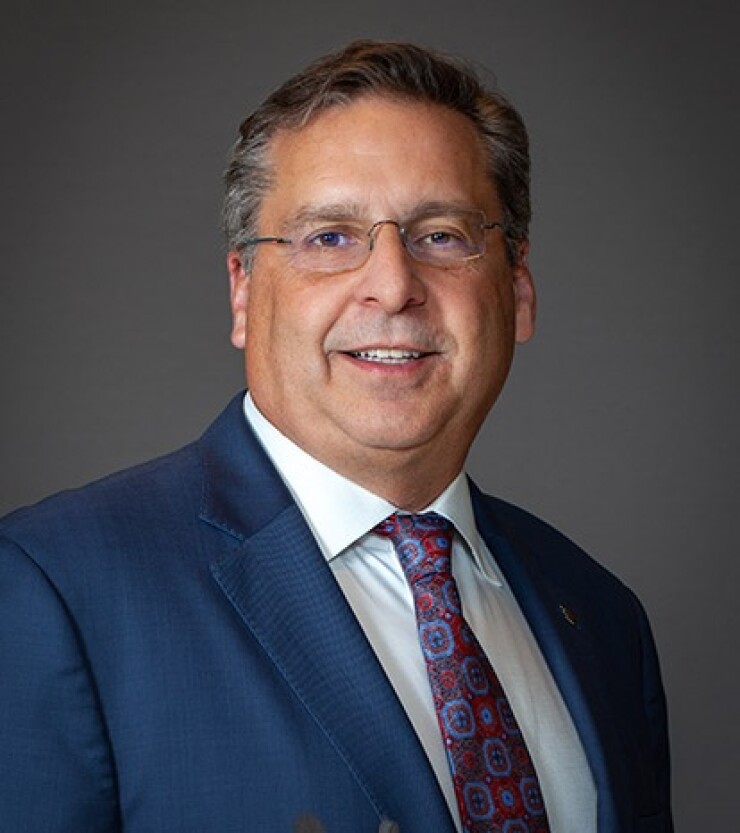
Though Live Oak Bancshares aims to be a bigger player in
"We don't want to get over our skis," Chief Strategy Officer Stephanie Mann said in a recent interview. "We're having conversations with a lot of fintechs for partners two and three right now."
The $11.9 billion-asset Live Oak announced its first fintech partner, Anatomy Financial, a San Francisco-based fintech offering financial automation services to healthcare practitioners, June 3. Live Oak views the collaboration, as well as its broader banking-as-a-service designs, as an extension of its core mission, serving small business owners, Mann said.
"We are definitely small-business focused," Mann said. "Our partners need to be mission-aligned."
The Wilmington, North Carolina-based Live Oak's methodology is different from that of many banks involved in banking-as-a-service. Rather than rely on a third party's software to serve as the link between end users and a participating financial institution, Live Oak's in-house solution lets Anatomy deliver banking services directly to customers. Accounts are ledgered at Live Oak, CEO Chip Mahan said in a press release.
"This means [customers'] money is not tangled in typical omnibus account structures," Mahan said.
"What you find in a lot of these [banking-as-a-service] partnerships is they have to abstract the general ledger," Stephanie Mann said in the interview. "There's a general ledger over here for your partnerships, and a general ledger over here for your main bank. Ours are one in the same."
The lack of tight, absolute general ledger control has emerged as an Achilles' heel for a number of banks. Indeed, the issue was brought into sharp focus this spring, when San Francisco-based Synapse, a company that connected startup fintechs with banking services, sought
According to a July 12 statement released by the Memphis-based Evolve, "the ledgers provided by Synapse show significant differences in Synapse Brokerage end user balances from one day to the next, without corresponding movement of funds. Some of these irregularities impact millions of dollars of end user funds, without explanation."
Live Oak believes it can avoid those kinds of pitfalls. In its model, accounts reside inside Live Oak Bank. "We're setting up the same processes for this partnership as we set up for all of our Live Oak business," Mann said. "Having to turn to a middleware provider or a fintech to answer questions from a regulator puts everybody in a really tough spot."
Like Live Oak, MainStreet has taken a deliberate approach to developing the nearly three-year-old Avenu. The company didn't onboard its first operational client, a Bloomington, Minnesota-based money transfer firm, until October 2023. While Avenu is moving closer to launching a second client relationship, it continues to proceed with caution. "We've really focused on getting all the i's dotted and the t's crossed," CEO Jeff Dick said in an interview.

In line with Live Oak, Avenu and MainStreet insist on complete control of the ledger as a bedrock precondition of any banking-as-a-service partnerships. "If a fintech client has their own ledger, I don't mind them using it," MainStreet CEO Jeff Dick said in an interview. "But ours is the ledger of record. Ours is the one that gets reconciled every day."
Far from viewing it as competition, Dick welcomed Live Oak's entry into banking-as-a-service. "I'm glad to see someone of [Chip Mahan's] stature pursuing this," Dick said. "If we continue to do it right, we'll legitimize what the market knows we can do."
Ironically, it was a conversation with Mahan that put MainStreet on the path to offering its own banking-as-a-service solution, Dick said.
Mahan "is just a delightful guy to talk with," Dick said. "He's the one that gave me, indirectly, the confidence to build [Avenu]. It probably emanated from him and what he had done at Live Oak."
Avenu's development has come at a cost. MainStreet reported a 13.5% year-over-year increase in salaries and benefits in its second-quarter financial report, due in part to the unit's growth. But there has been a corresponding boost in deposit-gathering – a key Avenu goal. Deposits totaled nearly $1.8 billion on June 30, up 10.2% from the same period in 2023.
Kompliant CEO Leo Patching said his San Jose, California-based financial compliance solutions firm is advising a Georgia bank that is pursuing an initiative similar in design to Live Oak's and MainStreet's. Patching said he believes more banks will embrace direct-to-client banking-as-a-service models — albeit reluctantly at first. They'll be daunted by the complexity and cost, but drawn, in the end, by the rapidly expanding market.
"Ultimately, the services being provided to the end user make sense, so there is a need there," Patching said in an interview. "The actual need in the market is proven by the big, scalable opportunities."
The careful, time-consuming pre-launch vetting of fintech partners that both Live Oak and Avenue have demonstrated will become routine going forward, Patching added. "I think the days of reactive review of partners or partnerships or technology service providers, I think that is gone," Patching said. "The problem here has been…actually putting in place the requisite checks, balances and controls to make sure the provider is doing their job, and doing it sustainably and scalably."
For its part, Live Oak is looking for new fintech partners offering solutions that lessen or eliminate pain points for small businesses. In Anatomy's case, Live Oak was attracted to its focus on streamlining medical billing. "Anatomy is saying, 'I'm building vertically specific software for healthcare [to address] the hardest revenue-management cycle out there," Mann said. "Collecting from all these different players, self-pay, co-pay, months after the bill was sent, then trying to match everything together."
Now, with Anatomy online, Live Oak is busy prospecting for a new crop of banking-as-a-service customers. "What it really involves is a lot of conversations," Mann said. "A lot of meeting people. A lot of conferences. I have a team and they're out talking to new people all the time."
Live Oak pursued a similar process in vetting Anatomy. "We spent a lot of time just getting to know each other and trying to understand how they do business," Mann said. "They're an incredibly impressive team…We were really inspired by them."






